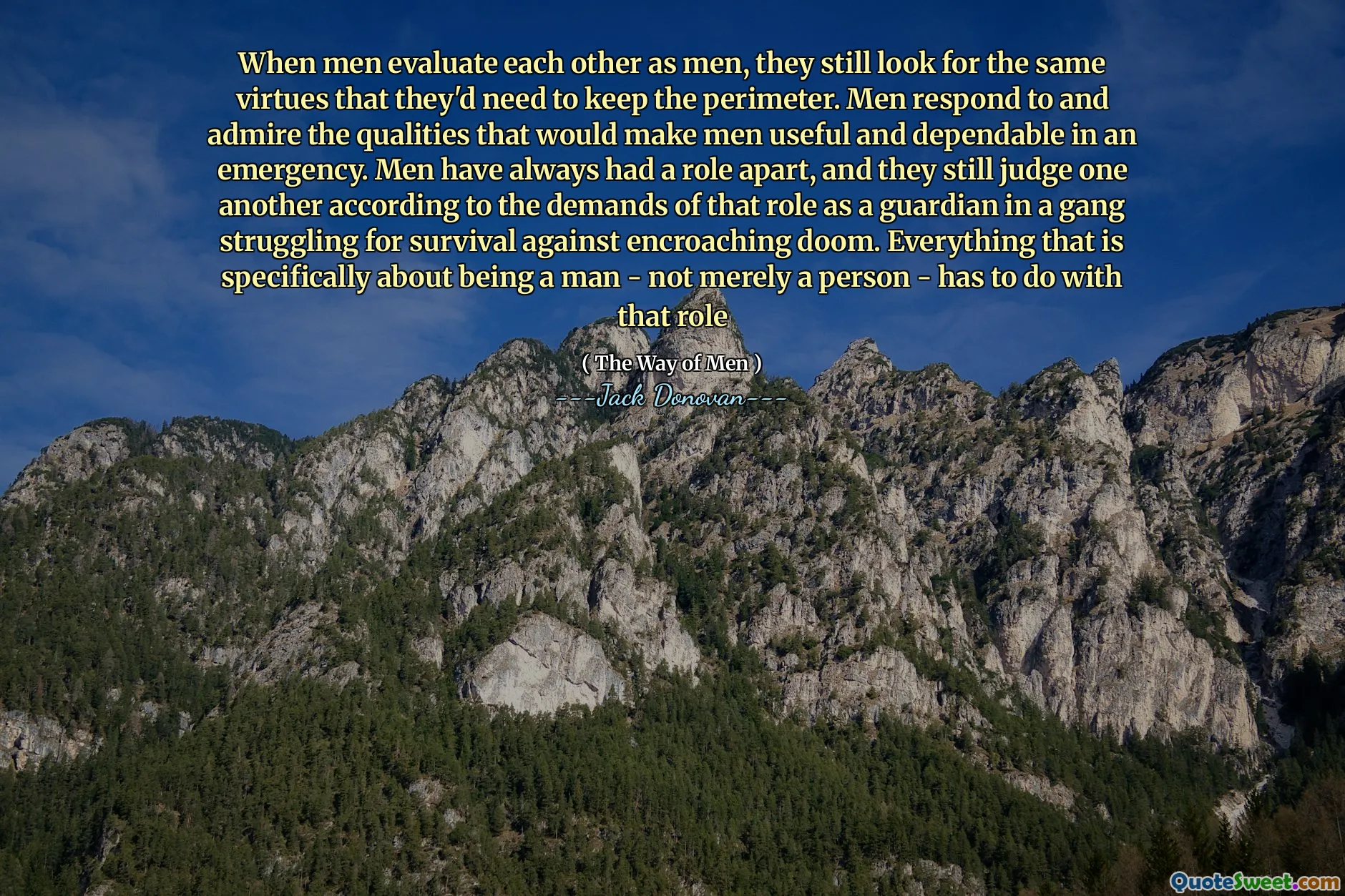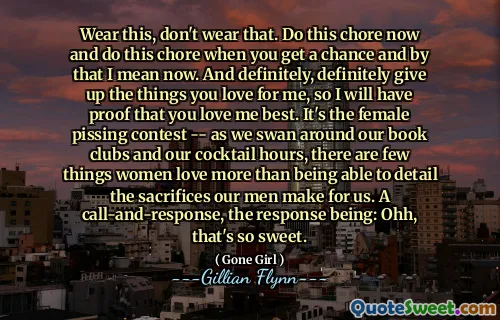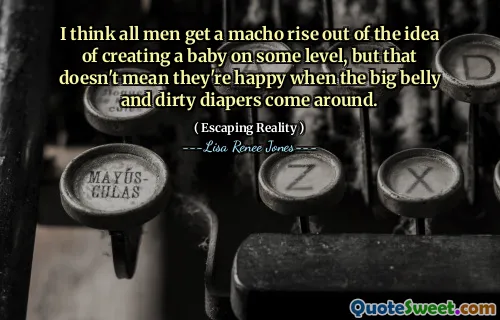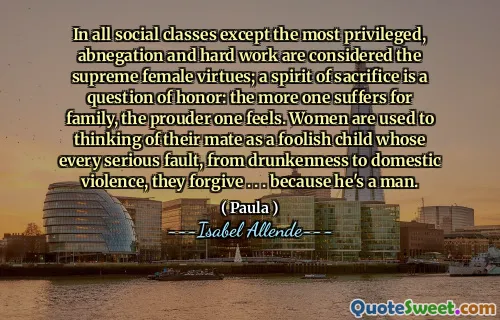
When men evaluate each other as men, they still look for the same virtues that they'd need to keep the perimeter. Men respond to and admire the qualities that would make men useful and dependable in an emergency. Men have always had a role apart, and they still judge one another according to the demands of that role as a guardian in a gang struggling for survival against encroaching doom. Everything that is specifically about being a man - not merely a person - has to do with that role
The quote delves into the primal and archetypal aspects of masculinity as presented in Jack Donovan's "The Way of Men." It suggests that masculinity is not merely a social construct or a broad identity but is anchored in specific roles and virtues oriented around survival, protection, and utility in critical situations. The metaphor of "keeping the perimeter" evokes an image of vigilance, defense, and readiness that has historically defined the role of men within a communal setting — often cast as protectors and providers amidst external threats. The notion that men evaluate one other based on these tangible, practical qualities — dependability, usefulness, courage — highlights an intrinsic standard for masculine value beyond surface-level traits or societal expectations.
This perspective emphasizes a form of masculinity tied to functionality and necessity, showcasing that men’s identities are deeply intertwined with their capacity to fulfill protective and survival roles. It also invites reflection on how these roles have persisted over time, even in contemporary contexts, and how cultural definitions of manhood continue to be influenced by historical archetypes of the "guardian" or "warrior." However, this view might also raise critical discussions about the limitations such narrowly defined roles impose on the understanding of masculinity and whether modern definitions should evolve alongside broader societal developments.
In essence, the quote challenges us to consider masculinity in terms of action and responsibility within a social context of survival and group cohesion, providing a raw and elemental lens through which to evaluate what it means to be a man.





